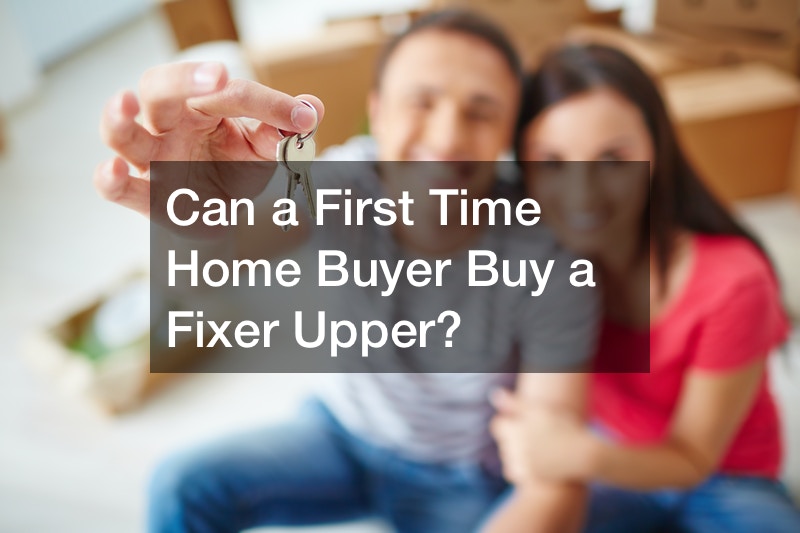Buying a home is a dream for many, but the financial burden can seem insurmountable. If you’re looking for an affordable way to enter the real estate market, consider purchasing a fixer-upper. Fixer-uppers are homes that require repairs or renovations to make them livable, and they can often be purchased for a fraction of the cost of a move-in ready home. However, without the capital to fund renovations, it may seem like an impossible task. This article will guide you through the creative financing options available to purchase a fixer-upper house with no money down.

Image: www.realestateskills.com
Government-Backed Loans
Government-backed loans, such as FHA and VA loans, are designed for first-time homebuyers and veterans, respectively. These loans offer low down payment options, often as low as 3%, and are backed by the federal government, reducing the risk to lenders. Additionally, FHA 203(k) loans are specifically designed for fixer-uppers, allowing you to finance both the purchase and renovation costs into a single mortgage.
Seller Financing
Seller financing occurs when the seller agrees to finance the sale of the property, acting as the bank. This can be a beneficial option if traditional financing is not available, as it provides more flexibility and can often be tailored to meet your specific needs. However, it’s important to carefully consider the terms of the agreement and seek legal advice to protect your interests.
Rent-to-Own
Rent-to-own arrangements allow you to lease a property with the option to purchase it at a later date. A portion of your monthly rent payments goes towards a down payment, gradually building your equity in the home. By the end of the lease term, you will have accumulated a substantial down payment that can be used towards financing the purchase.

Image: concordiaresearch.com
Property Tax Delinquency
Properties that have unpaid property taxes may be eligible for purchase through tax lien sales or tax deed auctions. This option involves paying off the delinquent taxes and acquiring a tax lien or deed on the property. However, the process can be complex and may have legal implications, making it essential to seek professional guidance before proceeding.
Rehab Loans and Grants
Government-funded programs, such as the HUD Section 504 loan and Community Development Block Grants (CDBG), offer low-interest loans or grants for low- and moderate-income homeowners to finance home improvement projects. These programs may be ideal for funding major renovations required for a fixer-upper.
Renovation Assistance Programs
Various non-profit organizations and local governments provide assistance programs that offer financial aid and resources for home renovations. These programs may be income-qualified and can provide grants or low-cost loans to help you complete necessary repairs or upgrades to your fixer-upper.
Crowdfunding
Crowdfunding platforms, like GoFundMe and Kickstarter, can be utilized to raise funds for your fixer-upper project. By sharing your story and the details of your renovation plans, you can appeal to the generosity of individuals who believe in your vision. Crowdfunding can be an innovative way to finance part or all of your renovations.
Sweat Equity and Bartering
If you possess construction skills or have valuable trade services, you can contribute sweat equity towards your fixer-upper’s renovations. This can significantly reduce labor costs and free up funds for materials and other expenses. Additionally, bartering your services with local contractors or handymen can help offset renovation costs by exchanging time and skills for materials or labor.
Partnerships and Joint Ventures
Teaming up with a partner or forming a joint venture can provide financial leverage and shared responsibilities for your fixer-upper project. By pooling resources, knowledge, and labor, you can reduce the financial burden and gain the support of like-minded individuals who share your vision of transforming a fixer-upper into a beautiful home.
How To Buy A Fixer Upper House With No Money
Conclusion
Buying a fixer-upper with no money down is an achievable goal with the right financing strategies and creative thinking. By exploring government-backed loans, seller financing, rent-to-own arrangements, and various assistance programs, you can unlock the potential of fixer-uppers and make your dream of homeownership a reality. Remember to carefully evaluate your financial situation, seek professional advice when necessary, and approach the renovation process with a positive mindset and a willingness to work hard. With determination and resourcefulness, you can transform a neglected property into a beautiful and valuable home, creating a foundation for a brighter financial future.